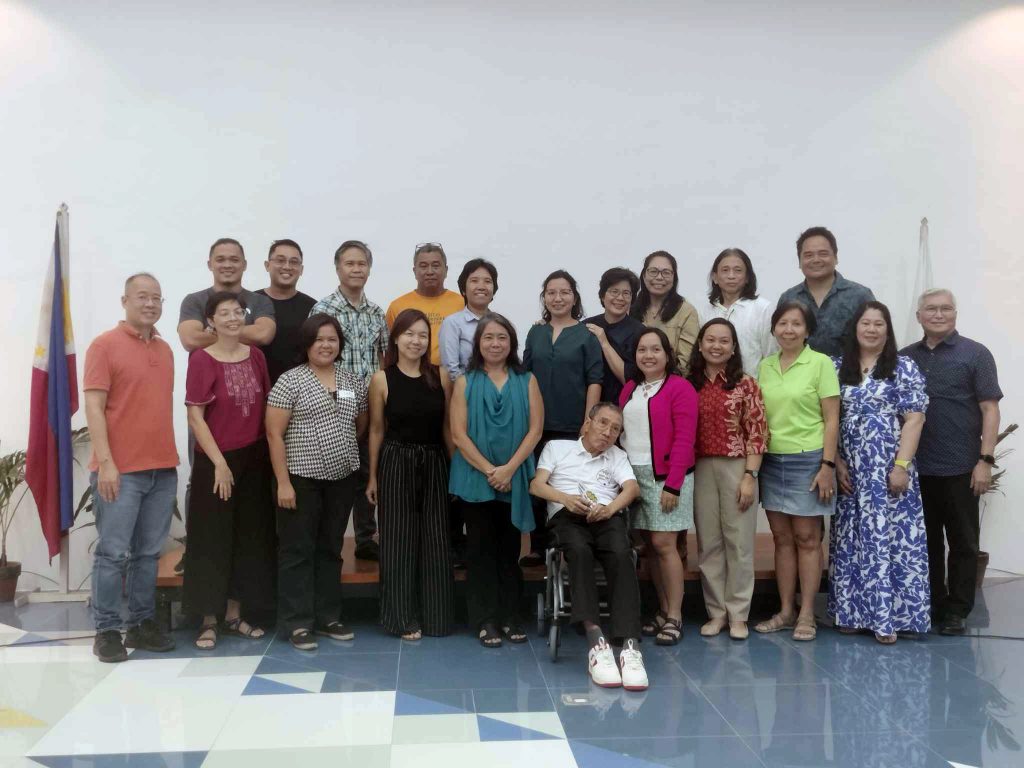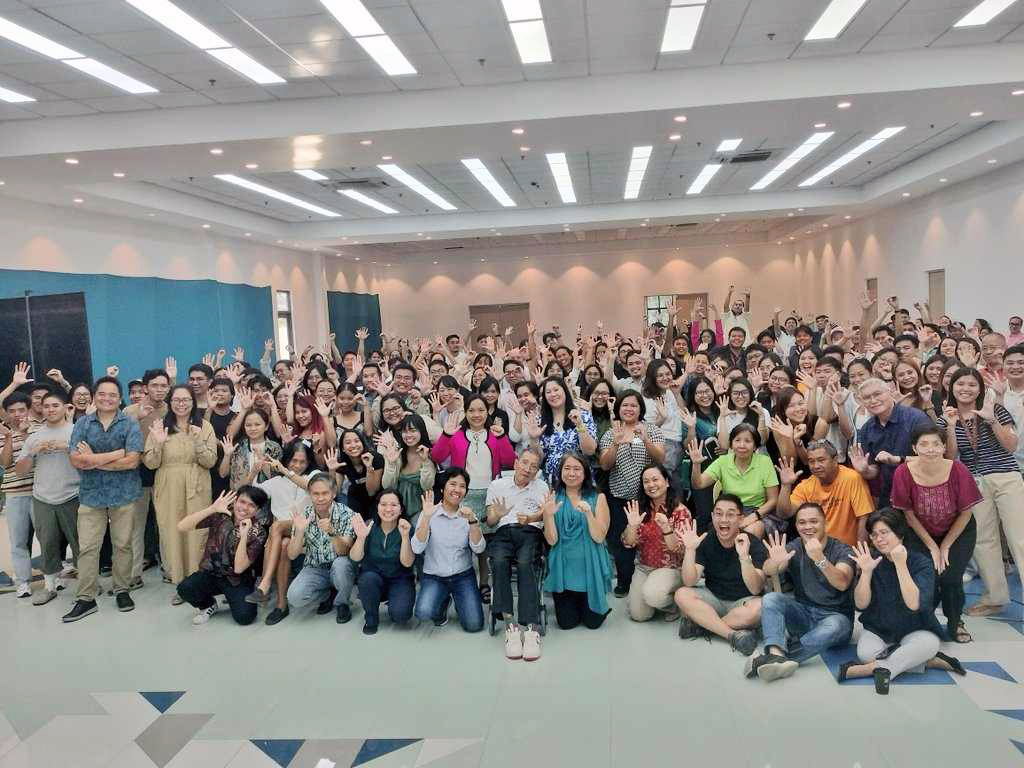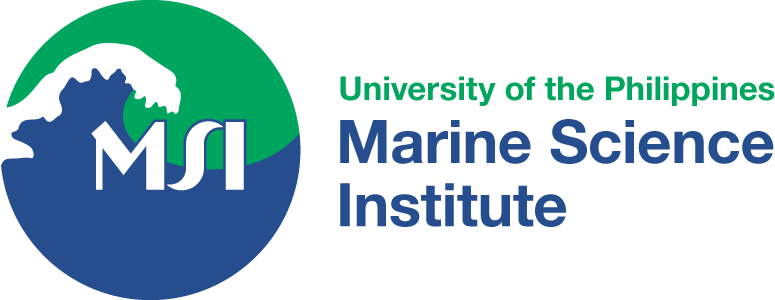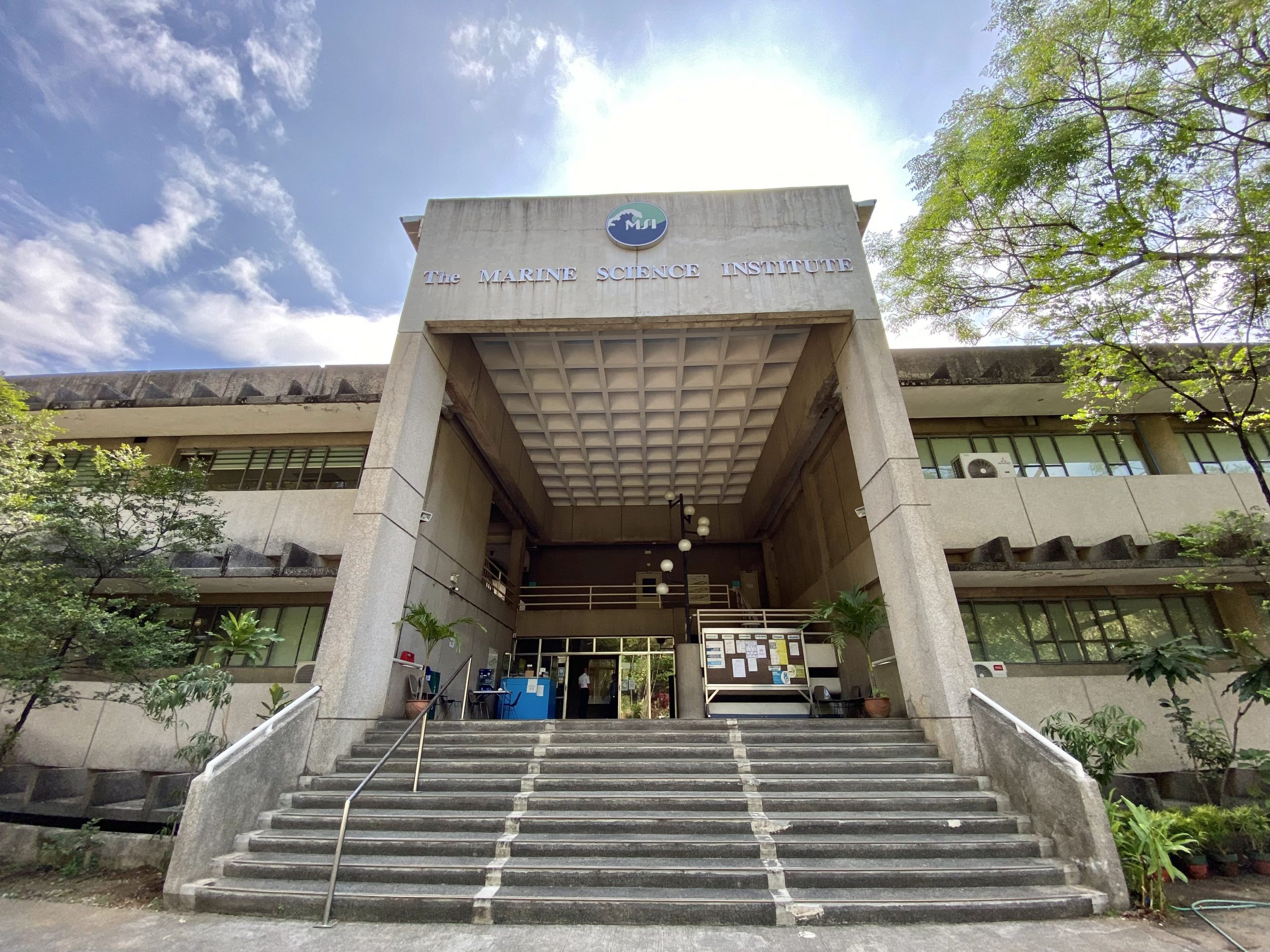The Marine Science Institute’s first 50 years
(with excerpts from “A Vignette MSI@30” by National Scientist Edgardo D. Gomez, in italics)
Marine Science Center
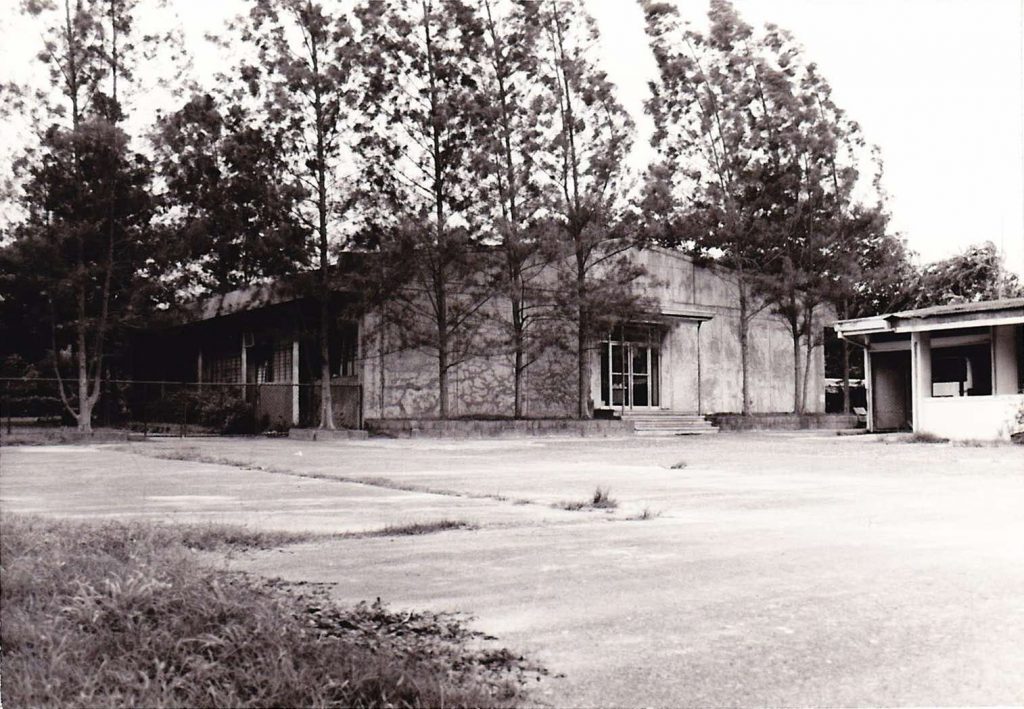
The Board of Regents of the University of the Philippines (UP) approved, on 28 March 1974, the charter of the Marine Sciences Center (MSC), a multidisciplinary research unit that was to serve the university at large. A newly recruited Filipino Ph.D. graduate of the Scripps Institution of Oceanography of the University of California – San Diego, Edgardo D. Gomez was appointed as the Acting Director with the charge of initiating the establishment of the center. The MSI Director and the first researchers occupied a few rooms at the Natural Sciences Research Center (NSRC).
It was also about the time of the reorganization of the College of Arts and Science (CAS) in the early 1980s that the institute began acquiring its permanent infrastructure. This began with the Coral Building, the Seaweed Chemistry Laboratory and Pilot Plant, and the Bolinao Marine Laboratory (in Pangasinan) where construction of a modest laboratory building began in 1984. This was initiated when funds were obtained from the Department of Budget as the Philippine counterpart of the United Nations Development Programme (UNDP) Institutional Development Grant.
Marine Science Institute
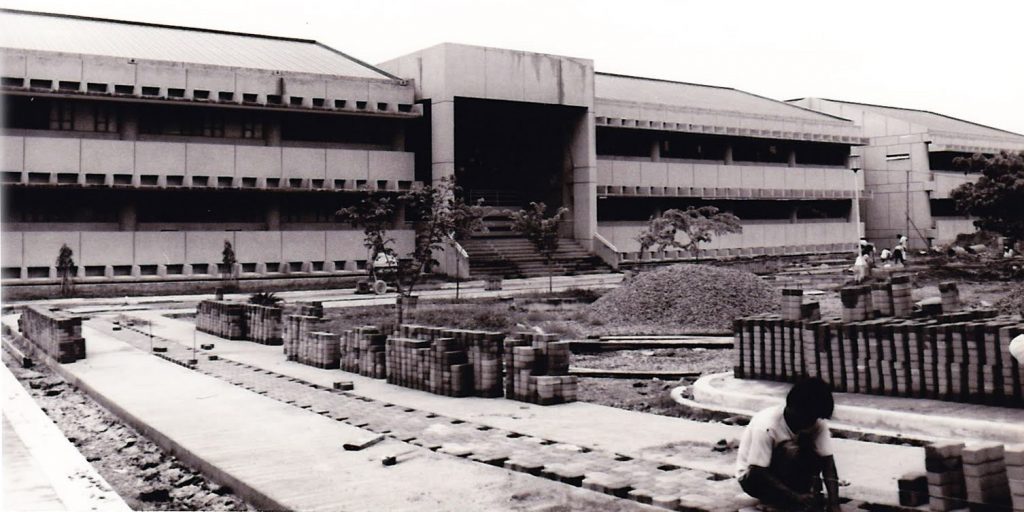
1985 was a turning point. The CAS was split into three colleges, one of which is now the College of Science. Marine scientists from the merged Departments of Botany and Zoology were transferred into the newly constituted MSC, now a degree-granting graduate unit called the Marine Science Institute (MSI). Administration of the MS Marine Biology program, as well as administration and operation of the UP Marine Biological Station at Puerto Galera in Mindoro, were transferred to MSI.
In 1986, the DOST-PCARRD Governing Council designated MSI the National Center for Marine Fisheries (Invertebrate and Seaweeds) in the Philippines.
The next stage was to encourage the M.Sc. graduates to seek Ph.D. scholarships abroad. The young scholars made every opportunity to seek doctoral programs in various universities and several countries, with support from UNDP fellowships, government scholarships, and teaching/research assistantships. While the local young researchers were working for their advanced degrees, a total of about 10 Peace Corps Volunteers provided much needed manpower on a staggered basis until their tours of duty ended. In 1988, MSI transferred from the NSRC building to Albert Hall and Villadolid Hall. The development of the MSI building in Diliman materialized during the time of President Edgardo J. Angara under the term of Dean and subsequent Chancellor Roger Posadas. MSI transferred to its own building in 1990. The last interior sections of the main building were finished under the terms of President Francisco Nemenzo and Chancellor Emerlinda Roman.
In the 1990s with the return of the new PhDs, new academic graduate programs and research disciplines emerged. The Marine Physical Sciences was established in 1990 and the Marine Biotechnology academic program in 2002.
In 1994, MSI was designated as the National Center of Excellence in the Marine Sciences through Presidential Proclamation No. 518.
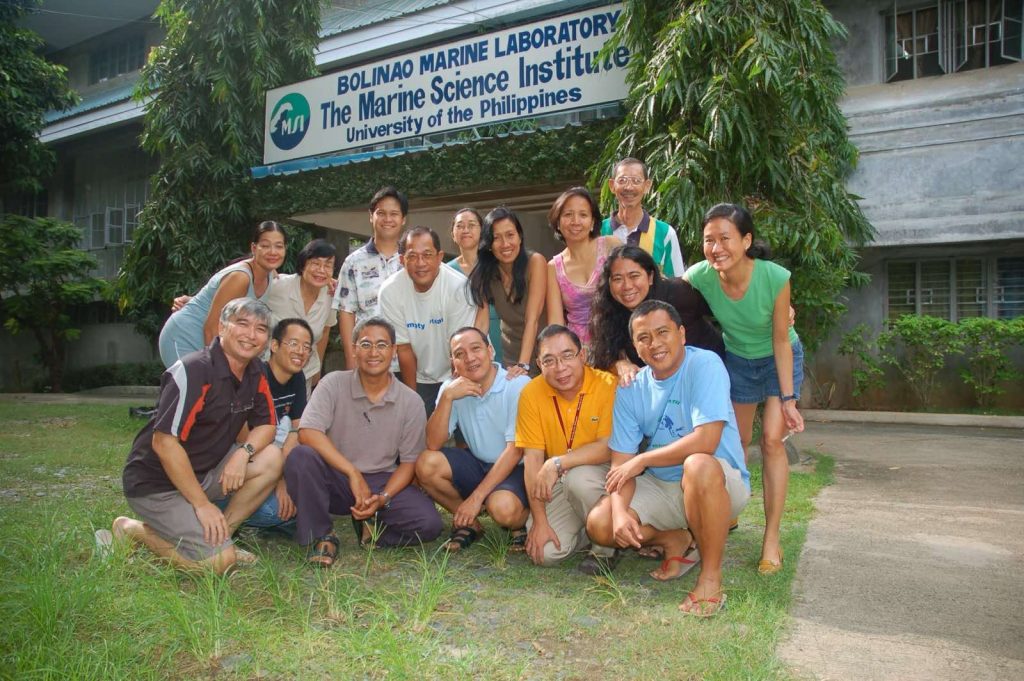
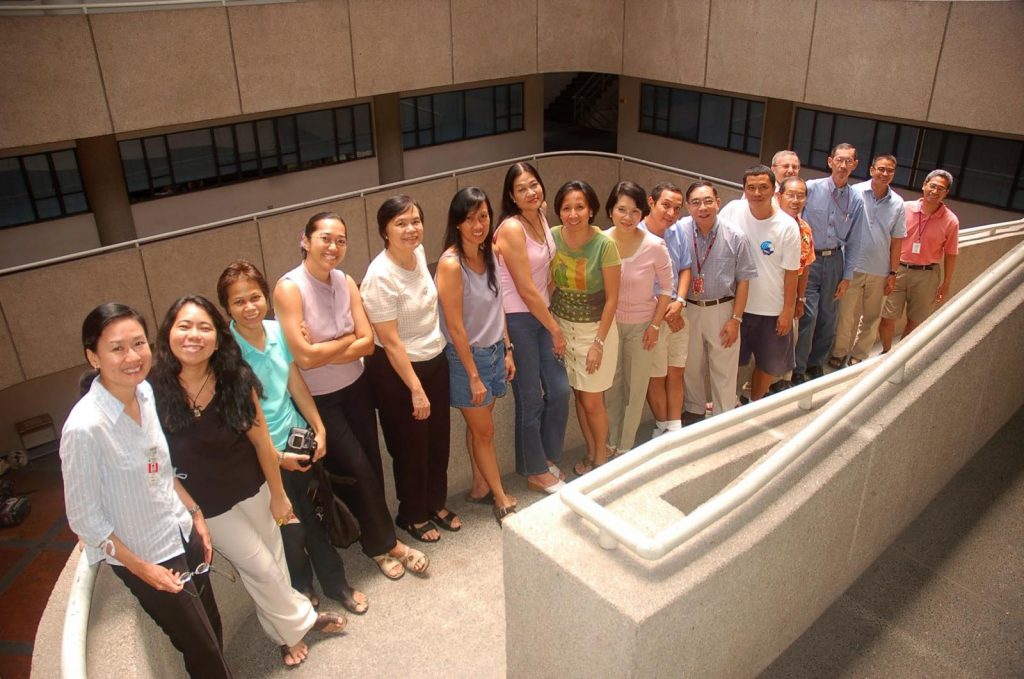
In 1998, MSI was declared the Center of Excellence in Marine Science by the Commission on Higher Education.
In 2000, then UP President Francisco Nemenzo signed Executive Order FN-00-03 which established MSI as a National Center of Excellence and provided for its organization, administration, staffing, and funding. MSI was the first unit in UPD to have research faculty positions.
The following period in the millennium saw MSI make a mark for the country in its pursuit of research, education, extension, and development aligned with UP’s mandate as a national university.
The key interdisciplinary research and development themes at MSI are:
- Archipelagic Oceanography
- Marine Biodiversity and Ecosystems
- Marine Biotechnology
- Climate change
MSI undertakes collaborative research and extension services in partnership with various academic, local and national government agencies to advance marine sciences research, sustainable utilization of coastal and marine living and non-living resources and conserve marine biodiversity resources. Various multidisciplinary and interdisciplinary programs, both national and international along the key R&D themes of MSI have been conducted over the years.
In 2013, the Partnerships in Environmental Management of the Seas of East Asia (PEMSEA) designated MSI as the Regional Center of Excellence in Coral Reef Research and Marine Protected Areas.
In 2014, the Ph.D. in Marine Science by research and the Professional Masters in Tropical Marine Ecosystems Management (PM-TMEM) were established. In 2016, UP and the Department of Public Works and Highways secured the budget for the construction of a new building that will house the Marine Biodiversity Resources and Information System (MBRIS), common advanced laboratories, and additional classrooms and meeting rooms.
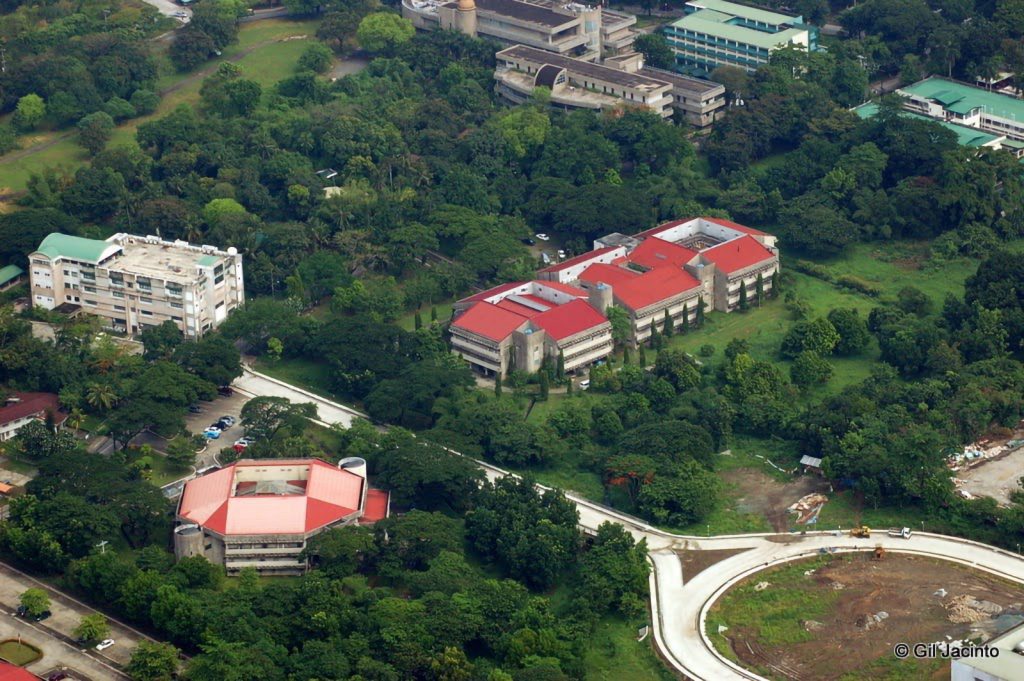
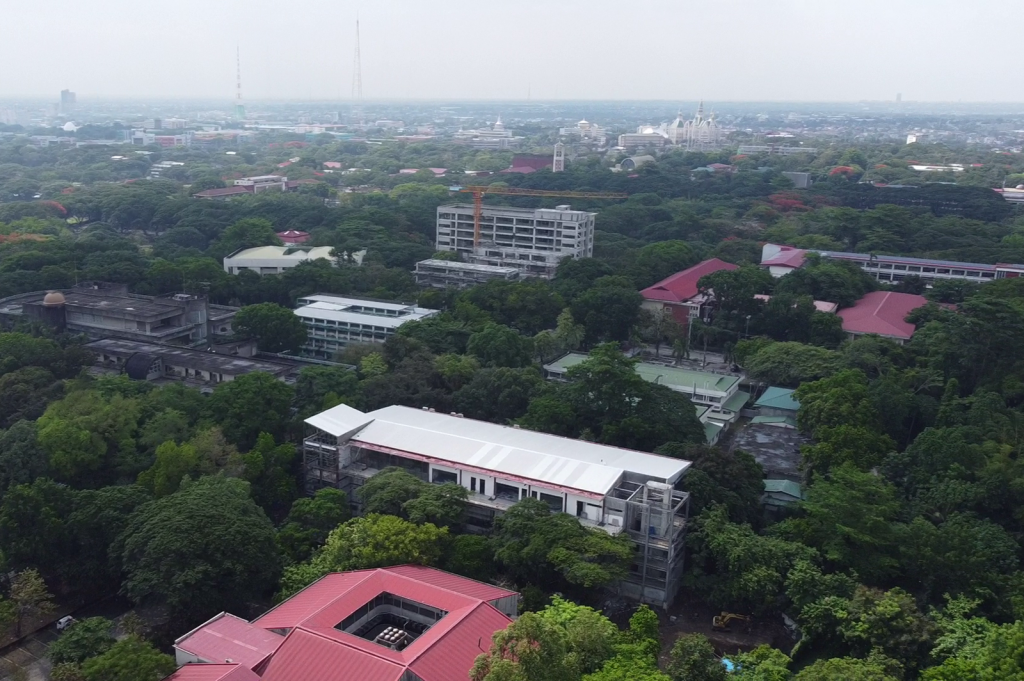
In 2017, the first research vessel and operations were funded by UP. In 2019, the acquisition of additional research vessels and the development of the National Academic Research Fleet (NARFleet) was initiated with the support of UP and the National Security Council. The procurement of the vessels was completed in 2023. The five vessels are managed and/or co-hosted by MSI and partner universities and are essential to research, academic activities, and capacity building.
In 2021, the Intergovernmental Oceanographic Commission (IOC) recognized MSI as the Regional Training and Research Center on Reef Management and Restoration in the Western Pacific.
As of the end of 2023, a total of 232 MSc and 34 PhD students have graduated from the three academic programs. In addition, 20 graduated from the PM-TMEM. MSI faculty have also mentored many students from other UP units and campuses. Currently, there are 141 MSc students and 19 PhD students enrolled at MSI.
In 2024, to commemorate MSI’s founding Director and its 50th anniversary, the MSI building will be renamed Edgardo D. Gomez Hall.
